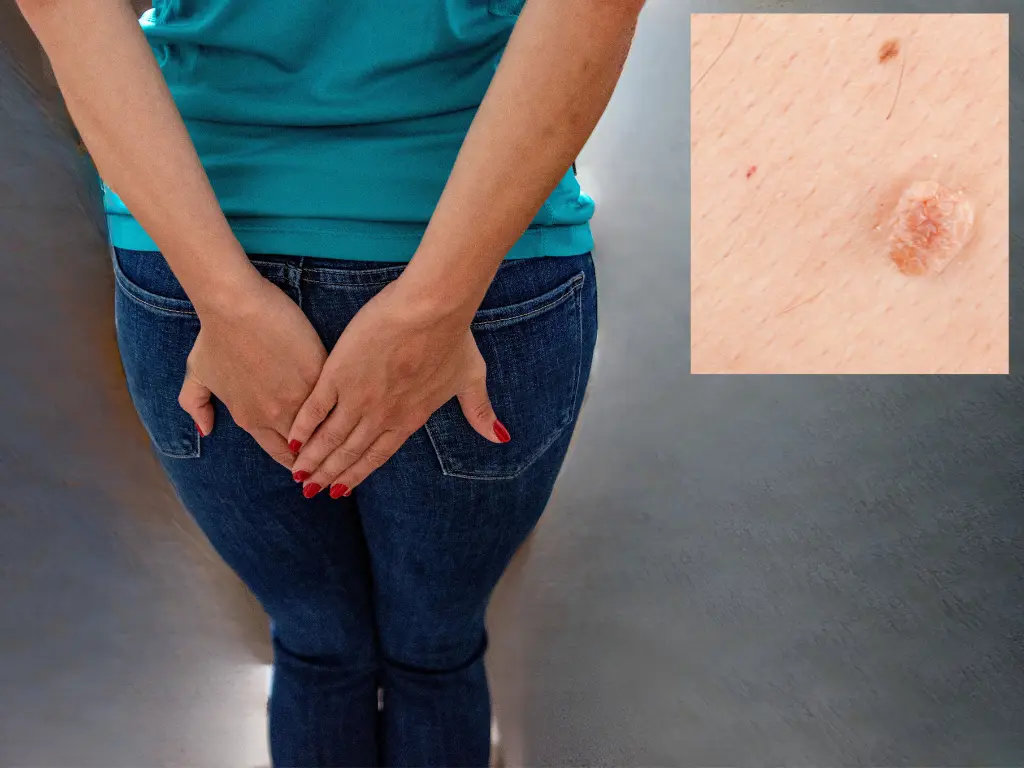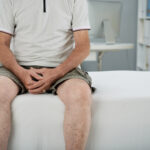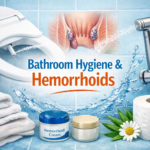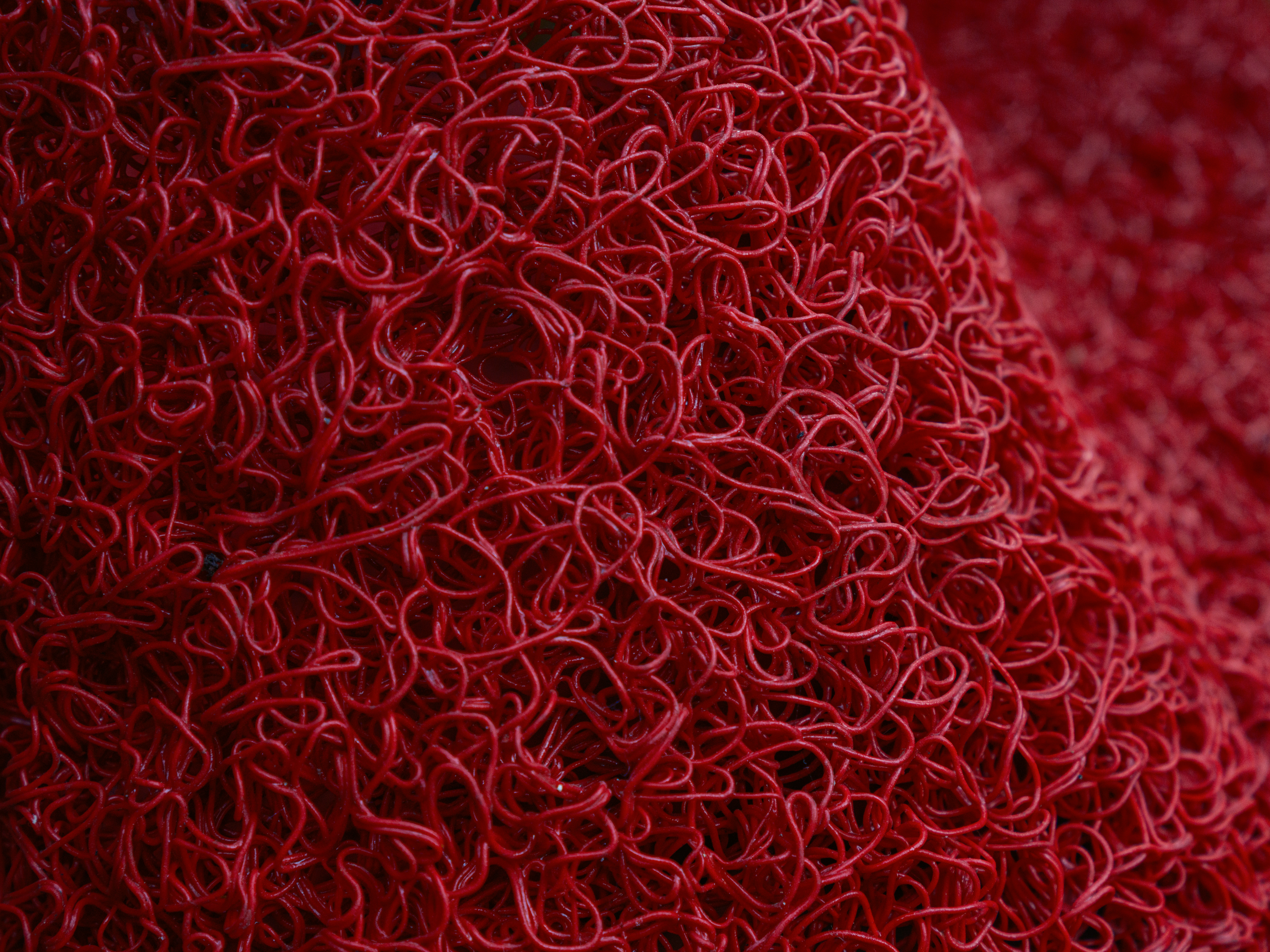An itchy, painful backside can be quite uncomfortable, especially if it lasts a long time. Sometimes it can be hard to know what’s causing it. Hemorrhoids or warts can be the culprit, but telling them apart can be challenging.
I’ve been right where you are. In fact, several times over the decade plus that I’ve been dealing with hemorrhoids, I wondered if I might actually be dealing with anal warts. Since then, I have gotten to be pretty good at telling them apart. In this post, I will explain the symptoms for hemorrhoids vs. warts, how you can get a correct diagnosis, and what to expect as far as treatments go.
What are Anal Warts?
Anal warts are tiny bumps that appear in and around the anus, sometimes spreading to the genitals. As they spread, large clusters of them can form. People usually notice them when they are external. When they are completely internal, you may not realize they are there.
Anal warts are actually a symptom of the human papilloma virus (HPV). If you think you might have anal warts, it is important to seek prompt treatment to prevent the warts from spreading, and to correctly diagnose HPV.
What are Hemorrhoids?
Hemorrhoids are what we call the anal “cushions” made up of blood vessels, smooth muscle and connecting tissue.
Sometimes, those cushions get swollen and inflamed. When they do, they may even protrude from the anal canal. We also refer to this condition as “hemorrhoids.”
Hemorrhoids are very common, affecting 1 in 20 people in the US. They can be painful and irritating, but they are not dangerous. They usually resolve on their own.
Unlike anal warts, hemorrhoids are not caused by an STD. Causes of hemorrhoids include constipation, diarrhea, straining on the toilet, pregnancy, childbirth, hormonal factors, long periods of sitting, and avoiding using the toilet when it is necessary.
Signs and Symptoms of Anal Warts
To help you figure out whether you are more likely to be suffering from anal warts or hemorrhoids, let’s go over the symptoms of each. We will begin with anal warts.
- Soft lumps. They may be flesh-colored, pink, yellow or brown, and may appear in and/or near your anus, and sometimes your genitals.
- Bleeding.
- Discharge.
- Itching.
Anal warts generally do not cause pain. Sometimes, their symptoms are not even noticeable to the person who has them. You might not even realize you have anal warts until someone else spots them.
Signs and Symptoms of Hemorrhoids
Now you know the signs and symptoms of anal warts. Here are the signs and symptoms that may accompany hemorrhoids.
- Itching.
- Bleeding.
- A foreign body sensation in the anal canal.
- Soft lumps in and around the anus.
- Pain during and/or between bowel movements.
As you can see, one of the key distinguishing features is that hemorrhoids often cause pain, but anal warts rarely do.
Nevertheless, this is still not a surefire way to tell the two conditions apart. Sometimes hemorrhoids are not painful.
Diagnosing Hemorrhoids vs. Anal Warts
Along with signs and symptoms, context clues may help you distinguish between anal warts and hemorrhoids. HPV, the condition that causes anal warts, is an STD. If you are sexually inactive and have limited physical contact with other people, for example, hemorrhoids are far more likely than anal warts.
On the other hand, if your symptoms just started after having sex with someone who might have HPV, you have more reason to be concerned.
If you are worried you might have anal warts, it is a good idea to pay a visit to your doctor for a formal diagnosis.
During your exam, your doctor will ask about your symptoms and medical history. This context along with a quick visual examination may be all it takes in some cases to provide a diagnosis. If not, the doctor may put on a latex glove to perform a digital exam. In some cases, they may also use a scope to check for internal warts or hemorrhoids. In rare cases, a biopsy may be needed to rule out other conditions.
How Hemorrhoids are Treated
If you have hemorrhoids, they may or may not need treatment. Usually, they go away by themselves. But you can take these steps to increase your comfort:
- Take anti-inflammatory medications like Ibuprofen or Tylenol.
- Apply witch hazel, wipes, aloe vera or a warm or cold compress.
- Take a warm bath.
- Eat more fiber.
- Wear loose clothing and sit on cushions.
Symptoms typically improve dramatically within several days. The hemorrhoids should resolve completely inside of a few weeks.
Occasionally, hemorrhoids may be especially painful due to a blood clot. When that happens, you might sometimes need a surgery called a thrombectomy. This is a minor surgery, and should lead to rapid recovery.
How Anal Warts are Treated
Anal warts also sometimes go away on their own. If they do not, you might need to apply a topical ointment as directed by your doctor.
In some cases, you and your doctor might decide to freeze or burn the warts off. If warts are internal or cover an extensive area, surgical removal may be necessary.
Anal cancer is a possible complication of untreated anal warts. So, it is essential that you treat anal warts that are not going away by themselves.
It is also really important to find out if you have HPV. Knowing you have HPV makes you more aware of your health risks, and it helps you keep your sexual partners informed.
Summary
When I wasn’t sure whether I had anal warts or hemorrhoids, I found it very nerve-racking. I hope with the info I have shared above regarding the symptoms, causes and diagnosis for these two conditions, you will be able to more easily tell what you have.
Remember, when in doubt, it is always best to consult with your doctor. Hopefully all you have is hemorrhoids, and they will soon go away on their own. But if you do have anal warts and HPV, it is important to find out as soon as possible.







